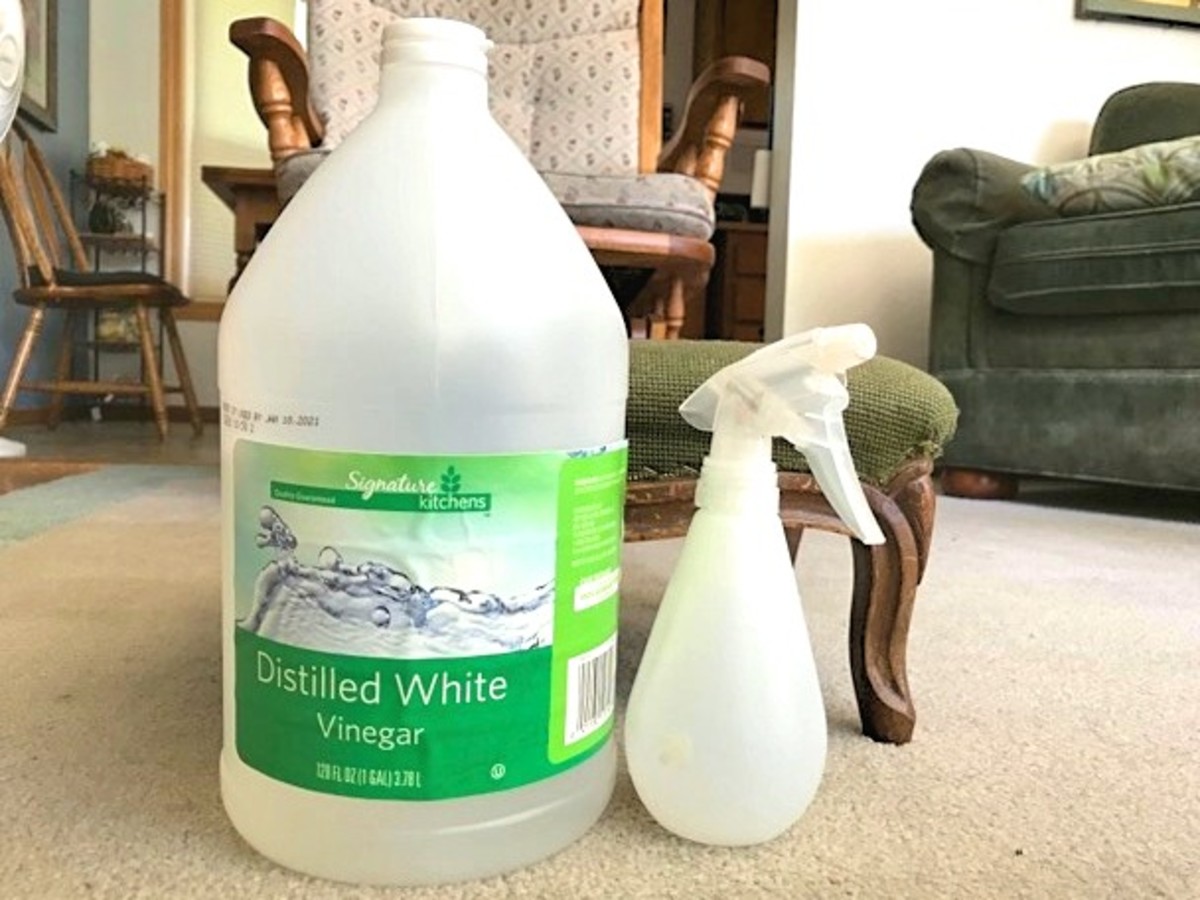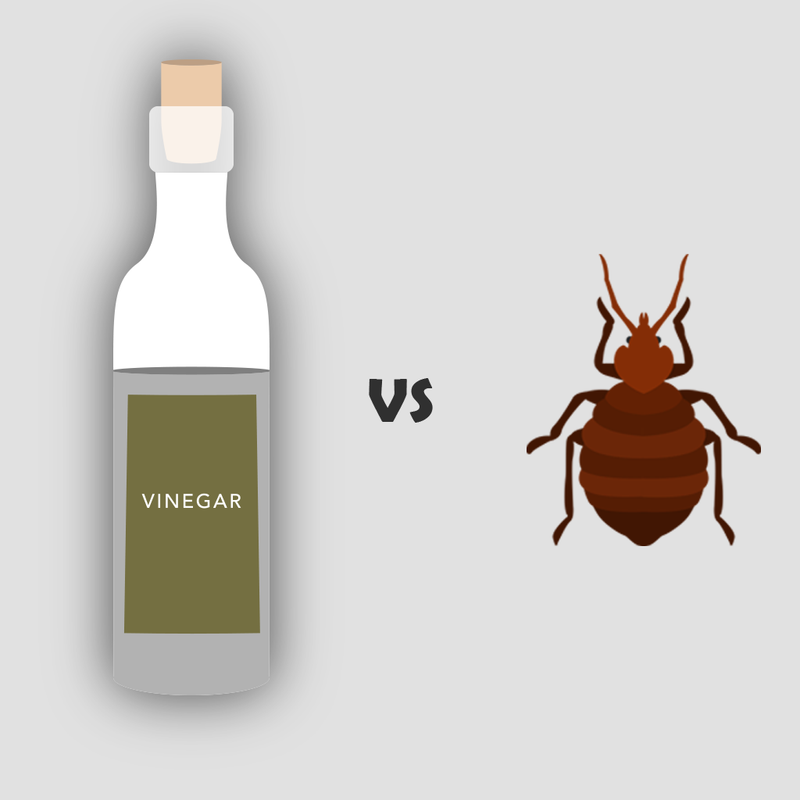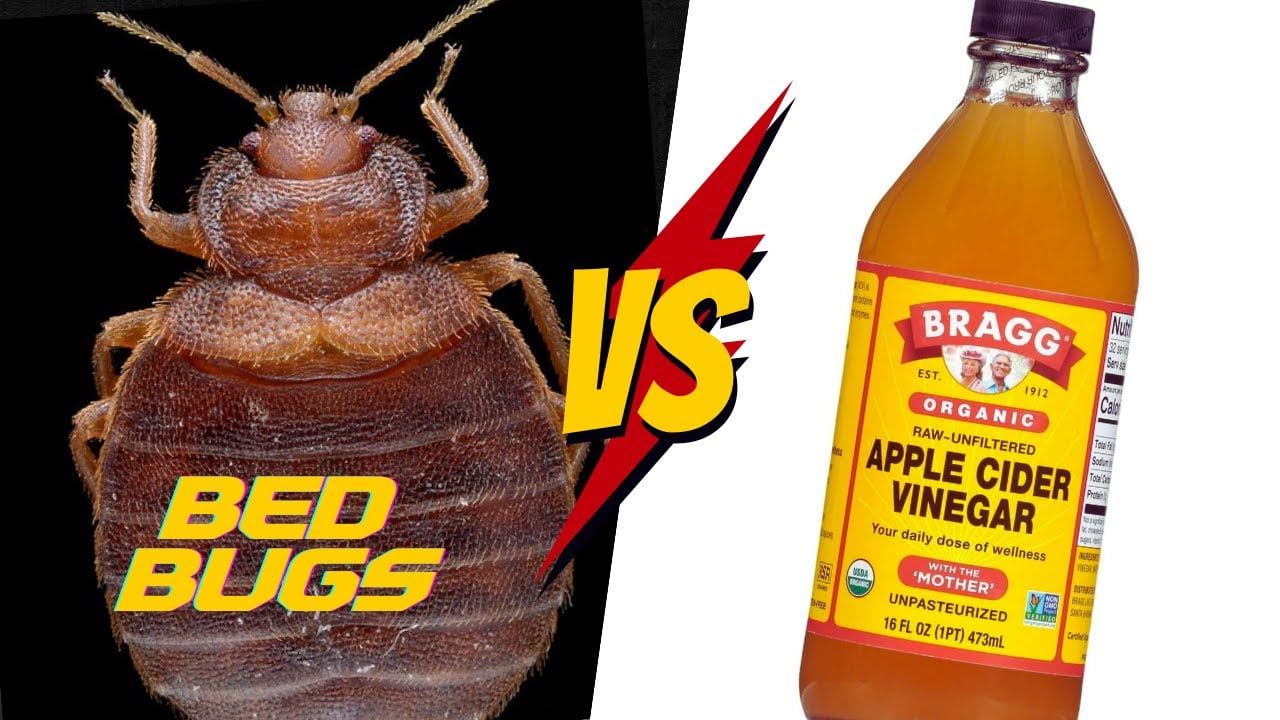Yes, white vinegar can kill bed bugs upon direct contact, but it may not be a complete eradication solution. While white vinegar can kill bed bugs upon direct contact, it’s not a comprehensive solution.
Reducing a bed bug infestation requires a combination of methods, including professional treatment if necessary. Dealing with a bed bug infestation can be a frustrating and challenging task. Many people turn to natural remedies, including vinegar, as a potential solution for addressing the issue.
Vinegar, particularly white vinegar, has been promoted as an effective method for killing bed bugs due to its acidic content. However, it should be noted that while vinegar can kill bed bugs upon direct contact, it may not penetrate their eggs, leading to a potential resurgence of the infestation if not properly addressed. Therefore, it’s essential to consider integrated pest management approaches and, if necessary, seek professional assistance to effectively eradicate bed bugs from your environment.

Credit: dengarden.com
Understanding The Impact Of Bed Bugs
Infestations can cause skin rashes, allergic reactions, and psychological distress.
The cost of extermination, replacing furniture, and lost income can be substantial.
Exploring Vinegar As A Potential Solution
Exploring vinegar as a potential solution to kill bed bugs, white vinegar proves effective as an affordable treatment. Its acetic acid content can eliminate bed bugs upon contact but may not eradicate eggs entirely. Diatomaceous earth also offers a chemical-free option for pest control, dehydrating and killing bed bugs effectively.
Types Of Vinegar And Their Properties
When it comes to exploring vinegar as a potential solution for killing bed bugs, it’s important to understand the different types of vinegar and their properties.
White vinegar: White vinegar, also known as distilled vinegar, is the most commonly used vinegar for DIY pest control. It contains acetic acid, which is effective at killing bed bugs upon direct contact. However, it is important to note that white vinegar does not kill the eggs, making it less effective as a complete eradication solution.
Apple cider vinegar: Apple cider vinegar is another type of vinegar that is sometimes used for pest control. While it can repel pests, including bed bugs, it is not as effective at killing them as white vinegar.
Balsamic vinegar: Balsamic vinegar is not recommended for bed bug treatment. It contains sugars and other ingredients that may attract pests rather than repel or kill them.
Effectiveness Of Vinegar In Killing Bed Bugs
Vinegar, especially white vinegar, is known for its acetic acid content, which can effectively kill bed bugs upon direct contact. However, it is important to note that vinegar alone is not a complete solution for treating an entire bed bug infestation. While it may kill the adult bugs, it does not kill the eggs, which can hatch and continue the infestation.
To effectively use vinegar as a bed bug treatment, it is recommended to combine it with other methods such as thorough cleaning, vacuuming, and professional pest control services. These additional measures can help ensure a more comprehensive approach to eliminating bed bugs from your home.
It’s also important to keep in mind that vinegar may not be suitable for all surfaces or fabrics, as its acidic nature can potentially cause damage. Therefore, it is crucial to test a small, inconspicuous area before applying vinegar to larger surfaces or materials.
In conclusion, while vinegar can be effective in killing bed bugs upon direct contact, it is best used as part of a multi-faceted approach to bed bug treatment and prevention.
Comparing Vinegar To Traditional Bed Bug Treatments
If you’re dealing with a bed bug infestation, you may be considering using vinegar as a natural solution. Many people are skeptical about the effectiveness of traditional pesticides and are seeking safer alternatives. In this section, we’ll compare the use of vinegar to traditional bed bug treatments and explore the pros and cons of using vinegar as a bed bug remedy.
Pros And Cons Of Using Vinegar
Pros of using vinegar for bed bug treatment:
- Vinegar is a natural and eco-friendly solution.
- It is readily available and affordable.
- Vinegar can effectively kill bed bugs upon direct contact.
Cons of using vinegar for bed bug treatment:
- Vinegar may not eliminate bed bug eggs, leading to re-infestation.
- It might not provide complete eradication of a widespread infestation.
- Overuse of vinegar can result in a pungent smell and potential damage to surfaces.
Comparison With Commercial Bed Bug Sprays
When compared to commercial bed bug sprays, vinegar may provide a safer and more natural alternative. However, commercial sprays are formulated to effectively target both bed bugs and their eggs, offering a more comprehensive solution.

Credit: bedbugsos.ca
Implementing Vinegar Treatment Safely
When utilizing vinegar to combat bed bugs, it is essential to prioritize safety precautions. Ventilation is crucial during application to avoid inhaling the potent odor. Additionally, it is important to protect your skin and eyes from direct exposure by using gloves and glasses.
Considering the strong acidic nature of vinegar, it is vital to exercise caution when handling and applying it. Proper labeling and storage of vinegar to prevent accidental ingestion is also important to ensure a safe environment.
Before applying vinegar, it is essential to thoroughly inspect the infested areas to pinpoint bed bug hotspots. Once identified, a solution consisting of equal parts of white vinegar and water can be applied directly to areas where bed bugs are suspected to reside.
After application, it is advisable to utilize a brush to ensure the solution reaches cracks and crevices. It’s crucial to repeat the process regularly to target any newly hatched bed bugs and ensure a more effective eradication.
Enhancing The Effectiveness Of Vinegar Treatment
Vinegar is a natural and versatile solution for eliminating bed bugs. When used correctly, it can be a powerful tool in your battle against these pesky pests. However, to truly harness the potential of vinegar as a bed bug killer, you may need to enhance its effectiveness. Here are some ways to maximize the efficacy of vinegar treatment:
Combining Vinegar With Other Natural Remedies
While vinegar alone can kill bed bugs on contact, combining it with other natural remedies can enhance its potency. Essential oils such as lavender, tea tree, or peppermint are well-known for their insect-repellent properties.
To create a powerful bed bug killer spray, simply mix equal parts vinegar and water in a spray bottle. Add a few drops of your preferred essential oil, shake well, and spray directly onto bed bug-infested areas. The pungent odor of vinegar combined with the aromatic scent of essential oils will not only repel bed bugs but also disrupt their breeding and feeding patterns.
In addition to essential oils, diatomaceous earth is another valuable natural remedy that can be used in conjunction with vinegar. This fine powder dehydrates bed bugs, penetrating their exoskeleton and causing them to die from dehydration. Sprinkle diatomaceous earth in cracks, crevices, and other hiding spots, and then apply the vinegar spray to ensure a thorough eradication of bed bugs.
Long-term Strategies For Bed Bug Prevention
While vinegar is effective at killing bed bugs, it is equally important to implement long-term strategies to prevent their return. Here are some preventative measures you can take:
- Seal cracks and crevices in walls, floors, and furniture to minimize potential hiding places for bed bugs.
- Regularly launder and dry bedding, clothing, and curtains on high heat to kill any potential bed bug eggs or nymphs.
- Invest in mattress and pillow encasements designed to prevent bed bugs from infesting your sleeping area.
- Keep your living space clutter-free and vacuum regularly, paying special attention to mattress seams, carpets, and any upholstered furniture.
- Consider using a steam cleaner to kill bed bugs and their eggs on furniture, cracks, and other hard-to-reach areas.
Implementing these long-term strategies alongside vinegar treatment will not only help eradicate existing bed bug infestations but also prevent future outbreaks.
Addressing Common Misconceptions About Vinegar And Bed Bugs
Myth: There is a misconception that vinegar can effectively kill bed bug eggs.
Reality: Vinegar, specifically white vinegar, can kill adult bed bugs upon direct contact. However, it does not effectively eliminate bed bug eggs.
While vinegar may be a natural and affordable option for dealing with bed bugs, it is important to understand its limitations.
It’s crucial to implement a comprehensive treatment plan that includes multiple strategies to address both adult bed bugs and their eggs.

Credit: dengarden.com
Frequently Asked Questions For Can I Use Vinegar To Kill Bed Bugs?
What Type Of Vinegar Kills Bed Bugs?
Yes, white vinegar can kill bed bugs as it contains acetic acid. It is an affordable and effective treatment.
What Is The Best Homemade Bed Bug Killer?
White vinegar is the best homemade bed bug killer. Its acetic acid content kills bed bugs on direct contact.
What Can I Spray On My Mattress To Kill Bed Bugs?
Yes, you can use white vinegar to kill bed bugs on your mattress. It is an effective and affordable treatment. Additionally, diatomaceous earth is a good chemical-free option for killing bed bugs by dehydrating them. Sprinkle it on infected areas and leave it for at least a week.
What Do You Mix With Vinegar To Kill Bugs?
Yes, you can kill bugs by mixing vinegar with water. The acetic acid in vinegar disrupts their nervous system, causing them to die upon contact. However, keep in mind that vinegar may not be a complete eradication solution and may not kill bug eggs.
Conclusion
Using white vinegar can be an effective option for killing bed bugs. Its acetic acid content is capable of eliminating the bugs upon direct contact. However, it should not be relied upon as the sole treatment for a complete infestation since it doesn’t kill the eggs.
It is recommended to combine the use of vinegar with other methods and strategies for a more comprehensive approach to bed bug eradication.
Related posts:

I’m MD Tanvir, and I bring years of expertise gained from working closely with pest control companies to the forefront. My journey in the industry has inspired me to launch Bug Battler, a platform aimed at equipping people with the know-how to combat pests autonomously. Through Bug Battler, I aim to empower individuals with practical insights to tackle pest infestations effectively.

